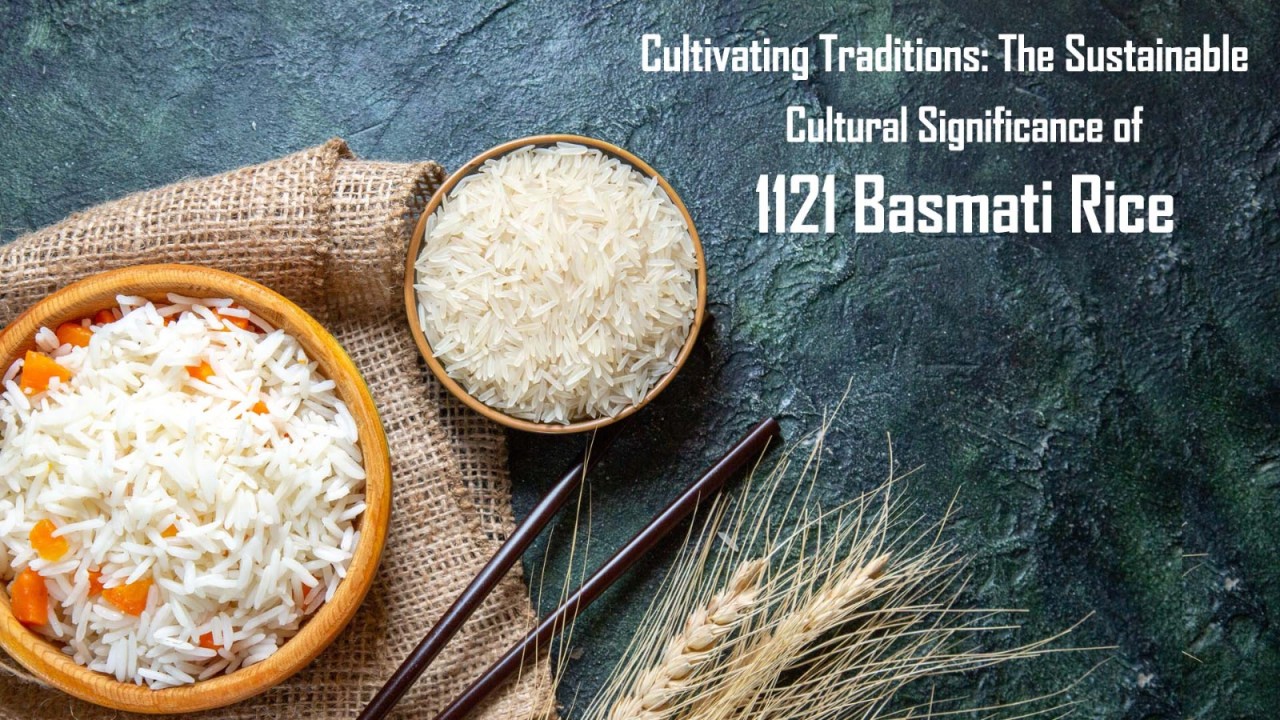
Cultivating Traditions: The Sustainable Cultural Significance of 1121 Basmati Rice
In the world of rice, few varieties can rival the aromatic and flavorful 1121 Basmati rice. Renowned for its long grains, delightful aroma, and delicate taste, this rice variety holds a special place in the hearts and kitchens of millions across the globe. But 1121 Basmati rice isn't just a culinary delight; it's also deeply intertwined with cultural traditions and sustainable farming practices. In this blog post, we'll explore the sustainable cultural significance of 1121 Basmati rice, shedding light on its journey from the paddy fields to our plates.
The Essence of 1121 Basmati Rice
Before delving into the cultural significance and sustainable practices surrounding this remarkable rice variety, let's understand what makes 1121 Basmati rice so exceptional.
1121 Basmati rice is renowned for its extra-long grains, which can stretch up to 8.4 mm, setting it apart from other rice varieties. These slender grains contribute to the rice's unique texture and excellent cooking qualities. The hallmark of 1121 Basmati rice, however, is its captivating aroma, often described as nutty and floral. This aroma, coupled with its delicate flavor, has earned it a prime position in various cuisines, particularly in South Asian and Middle Eastern dishes.
Cultural Significance
For centuries, rice has held immense cultural significance in many societies. It's not just a staple food; it's a symbol of sustenance, prosperity, and heritage. Similarly, 1121 Basmati rice has woven itself into the cultural fabric of regions where it is cultivated and consumed.
In South Asia, particularly in India, Basmati rice is more than just an ingredient; it's an integral part of festivals, weddings, and celebrations. The aroma of Basmati rice wafting from the kitchen signifies festivity and togetherness. Traditional dishes like biryani, pulao, and kedgeree rely on the distinctive qualities of 1121 Basmati rice to create culinary masterpieces.
Basmati rice is often used as an offering in religious ceremonies. It symbolizes purity and abundance, making it an essential component of rituals and customs.
Sustainable Farming Practices
The cultural significance of 1121 Basmati rice is deeply connected to the sustainable farming practices that have been passed down through generations. These practices not only ensure the quality and flavor of the rice but also protect the environment and support local economies.
One of the key aspects of sustainable farming for 1121 Basmati Steam rice is water management. Rice cultivation is famously water-intensive, but modern techniques, such as the System of Rice Intensification (SRI), have helped reduce water usage while increasing yields. This not only conserves precious water resources but also ensures the long-term viability of rice farming.
Many farmers have adopted organic and eco-friendly methods, reducing the use of chemical fertilizers and pesticides. This approach not only benefits the environment but also produces healthier rice.
Local communities of rice farmers, often family-run operations, play a vital role in preserving traditional farming techniques. These practices are passed down from one generation to the next, ensuring the sustainability of both the rice and the culture surrounding it.
Connecting Traders to Tradition
For traders involved in the rice industry, particularly 1121 Basmati rice traders, recognizing the cultural significance and sustainable farming practices associated with this rice variety is crucial. By supporting and promoting these practices, traders can not only ensure the availability of high-quality 1121 Basmati rice but also contribute to the preservation of cultural traditions and the protection of the environment.
Traders can also play a role in promoting fair trade practices that benefit local farmers and communities. This helps maintain the delicate balance between tradition, sustainability, and commerce.
Conclusion
1121 Basmati rice is more than just a food product; it's a bridge between tradition and sustainability. Its cultural significance and the sustainable farming practices that surround it make it a symbol of heritage and environmental responsibility. Traders, consumers, and advocates alike can appreciate and support the rich tapestry of traditions that this rice variety represents while ensuring its sustainable future on our plates.